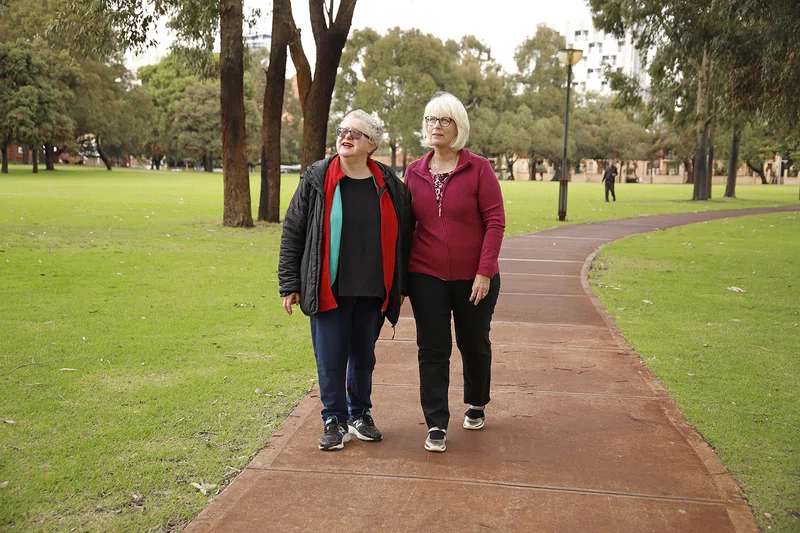

It all starts and stops with stigma: supporting people with obesity through the Weight Issues Network
It all starts and stops with stigma: supporting people with obesity through the Weight Issues Network
Obesity is a major public health issue that affects about 30 per cent of the Australian population. Historically, there has been a focus on prevention and little attention paid to how we can support people with obesity. We examine our national approach to obesity and the role that stigma and bias plays in treatment.
The Department of Health is drafting its National Obesity Prevention Strategy. The aim of the strategy is to reverse the current trend, which suggests that more than 18 million Australians (two-thirds of our projected population) will be overweight or obese by 2030.
But where does that leave 30 per cent of the population who are already living with obesity?
Historically, there has been a focus on ‘prevention’ and little attention paid to how we can support people with obesity. Stigma and bias have stunted the efforts of people who need support and made it difficult for them to seek help.
On an individual level, access to safe and affordable treatment is an uphill battle, with limited specialist services for weight management and no prescription medications available on the PBS. The psychological effects of stigma are especially damaging, with many experiencing both overt and covert judgement from individuals and institutions.
Since its establishment in 2019, the Weight issues Network (WIN) has endeavoured to address the gap in our national approach to obesity and provide a strong voice and support to people living with the condition. The WIN is steered by people with lived experience, community leaders and business experts, while Dr Nic Kormas is also on the board.
People experience weight bias and stigma in all aspects of their life. Weight stigma can have many serious impacts including:
- Depression and anxiety
- Social isolation
- Decreased self esteem
- Disordered eating such as binge eating
- Lower quality of care in the health system
- Discrimination in education and employment
We spoke to Dr. Kormas, a physician with over 20 years of experience in obesity management. As an Advanced Trainee, Dr Kormas stuck true to his findings that successful weight management of someone with both severe obesity and an associated health condition outperforms medication. He is an advocate for establishing better resources and support networks for people with obesity; a key reason why he was approached by members of the WIN prior to its launch.
'The WIN membership is made up of people who have had issues with obesity and professionals. So, there are inputs from both sides,' Dr Kormas said.
'When it comes to weight, there is so much information out there and a lot of it is neither evidence-based nor true, so I can help members decipher this information. During my time with the WIN, we’ve also had education sessions, and sessions where members can tell their stories in a very safe environment and feel supported.'
Dr Kormas recently contributed to the WIN’s 2020 report, The Personal Costs of Weight Issues in Australia, outlining the challenges experienced by people living with obesity and how we can support them.
One critical issue we are facing is: the health system is not set up to provide appropriate support for people experiencing weight issues.
'We believe that obesity is one of the most under resourced areas of medicine for many reasons - the main one being stigma and blaming patients for their condition. Instead of being resourced to provide treatment options for obesity, we are resourced to treat conditions that result from obesity.'
'Obesity medicine is the most under-resourced area of medicine in the health system. I’ve been actively involved in trying to set up more and better services, and patient support groups,' Dr Kormas explained.
'If you think about it, obesity is one of the only health conditions where we focus on prevention, rather than how to help people who have that condition. The health system puts time and resources into trying to prevent obesity and forgets about actual treatment.'
Advocacy for further services in the health system is critical to ensuring weight management does not simply boil down to telling people to ‘eat less and walk more’ rather than showing and supporting them with evidence-based treatments.
The WIN report highlights a concerning shortage in the number of public services accessible to people living with obesity. One of the most blinding observations is the fact that there are over one million Australian adults with clinically severe obesity (class III or class II with an obesity related disease), yet it is estimated that less than 2000 people have access to public specialty services each year.
Crucial to the equation is the need for a safe space free of judgement, active listening, and an understanding of the complex nature of obesity when consulting patients.
'Whenever people attempt to address a complex problem, they need to involve the group affected by that problem,' Dr Kormas said.
'In any policy document, the WIN needs to be involved so the consumer voice can be heard. Whether it’s at a strategic level, an educational level, a research level, or in efforts to destigmatise. Listen to what they have to say. Don’t always immediately think that you’ve got the solution and your solution is perfect for them.'
'Ninety per cent of what I’ve learned has been from patients. Not from textbooks. I think everybody else needs to do the same at all levels, including the medical profession and the government.'
Dr Nic Kormas
There are key areas outlined in the report where the main issues within the health system can be addressed1:
Putting a stop to weight stigma
- Including a voice with lived experience to help guide development of treatment plans and pathways.
- Anti-stigma approaches to healthcare, including awareness of negative language and framing.
- Evidence-based support and resilience training.
- Mandatory obesity training as part of all health and social care service education, to promote a better understanding of the science of obesity.
- Respectful and helpful conversations with health professionals to empower people with obesity to seek support and ask questions.
- Affordable, accessible and effective evidence-based treatment options nationally to suit individual needs.
By tuning into stigma and bias within the health system, exercising a more compassionate form of consultation and increasing the support services available, people with obesity will be empowered to seek the support they need and work on improving their overall health.






